Archives
February 18, 2015
We are living through the early days of the next civil rights movement. It is an exhilarating moment. No, it does not read like the linear narrative of our history books and movement building manuals. That is because books and manuals are usually written with the benefit of hindsight to weave a story together. This movement is emergent and it takes a sharp eye to understand it.
Tip #1: You and Oprah should let go of old definitions of leadership
Jodie Tonita of the Social Transformation Project has recently published one of the sharpest articulations of leadership and how it works in the #BlackLivesMatter movement. I urge you to read it in its entirety.
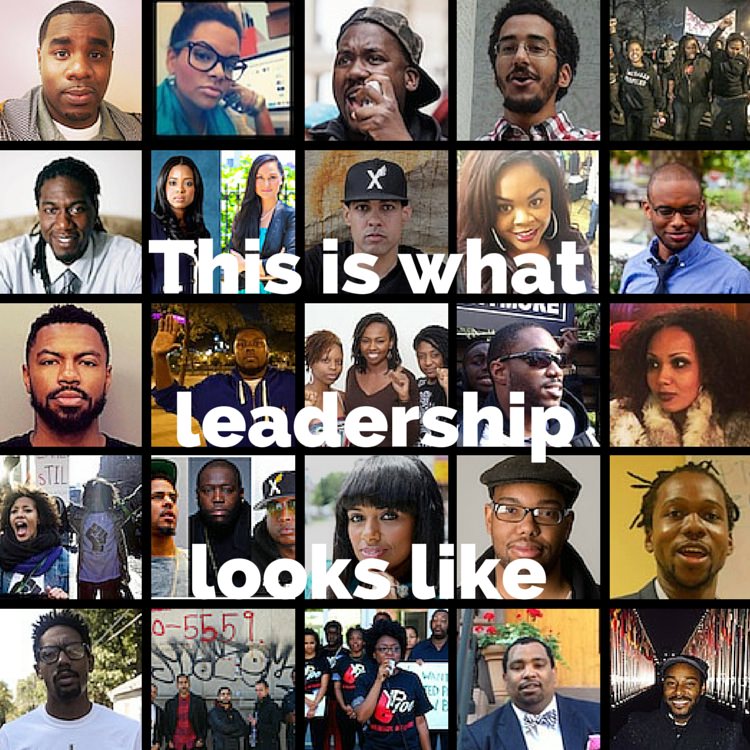
Names, bios, and more at revolt.tv.
Read More
February 12, 2015
“You have to remember, every boundary is a useful bit of fiction.”
– Buckminster Fuller

One of the more memorable stories about my late father, who passed away 3 years ago this month, happened not long after the Great Recession began in 2008. At the time, he was on the board of a national organization devoted to the study and promotion of human consciousness and the connection between science and spirituality. During a phone meeting of board members, people got to talking about the economic crisis, at which point one member made the following remark: “It’s at times like these that it’s especially important to remember that we are all one.”
“Bullshit!” was my dad’s response (not prone to such outbursts on that board or in general).
After a momentary and no doubt stunned silence, he elaborated – “Clearly we are not one. Some people, a very few people, are making out like bandits from this crisis. Meanwhile of the so-called 99%, some have been much harder hit than others, their wealth decimated. How can we say we are one at a time like this?”
To be fair to my father and full in the storytelling, my dad acknowledged that he believed that it is important to recognize interdependence and shared humanity, and that how and when to do this is an important consideration. Which brings me to the quote from Buckminster Fuller above, a personal favorite and one that I seem to keep sharing recently. Fuller, the eminent systems theorist and design scientist, understood the interconnected nature of reality, as well as the human need and tendency to draw boundaries. Theoretically these boundaries are drawn to be of use to something and/or someone – to name important distinctions, focus attention, aid with analysis, etc. In fact boundaries, or at least difference, might be said to be crucial to life, as dynamic exchange is required to keep living systems alive. Yes, boundaries can be very useful . . . except when they’re not. Read More
February 4, 2015
The most unique feature of the Go Boston 2030 Question Campaign is happening: a glass truck is collecting questions in Boston’s neighborhoods, making two stops a day through Feb. 7. To find the truck in your neighborhood, visit GoBoston2030.org.
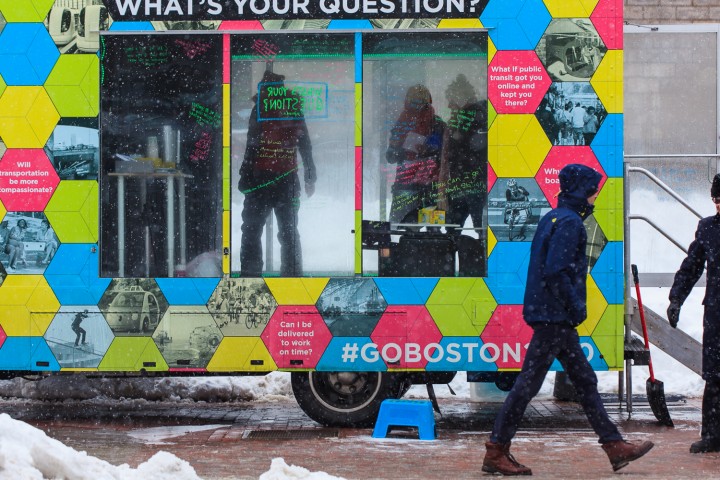 The Mayor’s office announced the What’s Your Question truck and it debuted at City Hall Plaza.
The Mayor’s office announced the What’s Your Question truck and it debuted at City Hall Plaza.
“The Go Boston 2030 initiative is using the latest technology and real grass roots activity to achieve an unprecedented level of community engagement. We’re hearing directly from a broad group of people about what their needs and hopes are for Boston’s transportation future,” said Mayor Walsh. “Together, through this initiative, the public and city officials will build a bold and innovative plan that will improve mobility for residents, commuters, and visitors.”
Read More
January 29, 2015
“Our world is, to a very real extent, based on dialogue. Every action taken that involves more than one person arises from conversation that generates, coordinates and reflects those actions. Those actions have impact. If our human world is based on conversations, then the work of creating and supporting those conversations is central to shaping a world that works. Designing and conducting meetings and other groups sessions well is vital to determining our common future.”
– Group Works
 Just recently in work with a national network, we turned the corner to start creating a structure to channel the alignment it has achieved around core goals for system change and ultimately to realize “collective impact” in a particular domain. As we were kicking off some of the early discussions, someone asked what I thought were the keys to creating a successful network structure. That’s a huge question that merits a complex answer, and I’ll admit that in reflecting on the dozen or so large scale change efforts I’ve been a part of the past 7 or 8 years, the first thing that came to mind was – “really good facilitation.”
Just recently in work with a national network, we turned the corner to start creating a structure to channel the alignment it has achieved around core goals for system change and ultimately to realize “collective impact” in a particular domain. As we were kicking off some of the early discussions, someone asked what I thought were the keys to creating a successful network structure. That’s a huge question that merits a complex answer, and I’ll admit that in reflecting on the dozen or so large scale change efforts I’ve been a part of the past 7 or 8 years, the first thing that came to mind was – “really good facilitation.”
Simplistic as this response may sound I was thinking of lessons learned from numerous efforts that no beautiful or well thought out network/collaborative structure stands up to a lack of strong facilitative capacity (skillset, mindset, and heartset). To be more nuanced, it is not just facilitation that ultimately came to mind, but what we at IISC call facilitative leadership.
For over 20 years, IISC has been teaching, preaching and practicing Facilitative Leadership (FL), and in many ways it seems that this approach has never been riper in light of the burgeoning call to collaborate and cooperate across boundaries of all kinds. At its base, FL is about creating and inspiring the conditions for self-organization so that people can successfully achieve a common (and often evolving) goal. The logical question that follows is, “How does one ‘create and inspire’ these conditions?” The answer is found in a variety of practices derived from successful group work and that have indeed shown promise across different networks and large scale change efforts to create solid foundations and momentum for social change. Among them are these: Read More
January 28, 2015
This summer my daughter and I collected questions for Go Boston 2030 at an event in Roxbury. We walked up to people and asked them, what’s your question about getting around Boston in the future? It usually takes folks a minute to orient themselves to what they have just been asked. “So, you want a question?” Yes! Questions open up possibilities and thoughtful consideration – and that is why they are the starting point for Go Boston 2030.
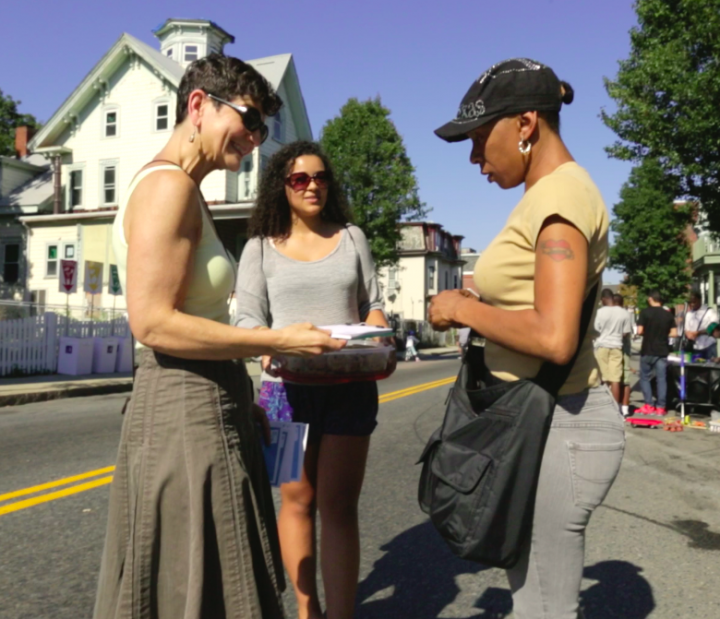
GoBoston2030 is a visioning initiative, led by Mayor Marty Walsh and the Boston Transportation Department. The project will inspire a bold transportation future for the city in the next 10-15 years, grounded in commitments to equity, environment and economy as well as driven by an unprecedented public engagement process. As a partner to the city in this, IISC designed and launched a Question Campaign which is a communication and engagement strategy. The Question Campaign promotes the practice of asking questions and sharing stories of mobility and transportation to engage the creativity and ideas of all people in Boston, with particular attention to the the margins of society, those traditionally excluded. Read More
January 22, 2015
“If you bring the appropriate people together in constructive ways with good information, they will create authentic visions and strategies for addressing the shared concerns of the organization and community.”
David Chrislip

In our work at IISC, we occasionally reference David Chrislip’s “collaborative premise” (see above) as a way of orienting people to some of the key components of effective collective and net work. Given our emphasis on effective stakeholder engagement and process design, we generally focus on the first two elements more so than the last around good information, which does not mean we think it doesn’t matter. In fact, recently I’ve been observing some interesting dynamics around the data conversation in various network building and collective impact projects that we support.
Invariably, it seems that there are those who are quite concerned about ensuring that a given collective effort has the “right data” and that people are being “rigorous” in their approach to problem/opportunity analysis and solution generation. While understanding the need to have and use good data, we also think that it’s important to ask the question – Data for what? People often say they want data to ensure that they are not making uninformed and overly subjective judgments. Understandable. Furthermore it is sensible to want to seek out a baseline to be able to measure progress as a change effort moves forward. This said, I see a number of pitfalls in what can sometimes become the drumbeat for data.
Read More
January 19, 2015
“Through our scientific and technological genius, we have made of this world a neighborhood and yet we have not had the ethical commitment to make of it a brotherhood. But somehow, and in some way, we have got to do this. we must all learn to live together as brothers or we will all perish together as fools. We are tied together in the single garment of destiny, caught in an inescapable network of mutuality. And whatever affects one directly affects all indirectly. For some strange reason I can never be what I ought to be until you are what you ought to be. And you can never be what you ought to be until I am what I ought to be.” – Dr. Martin Luther King, Jr. “Remaining Awake through a Great Revolution”
Recently I have been blown away by the ability of people, in the midst of racialized tension and harsh accusations, to move through insults and injuries, listen deeply to one another, account for the hurtful impacts of their behaviors, and recommit to a new level of partnership and trust. I have witnessed this kind of healing among a multiracial group of people including government employees and grassroots community leaders I am working with in a U.S. city. These folks are coming up against the same big barriers I believe all of us doing racial justice work are coming up against: people acting from unspoken and deep-seated sets of cultural values that are seemingly at odds and a lack of common language to understand how racism is playing out in our communities. Without addressing these barriers, it is too easy for us to take things personally, become defensive, and continue believing that folks who don’t think exactly like us are wrong or inferior. We can go along collaborating and making surface-level reforms, but I think it is time for us to do the deeper work.
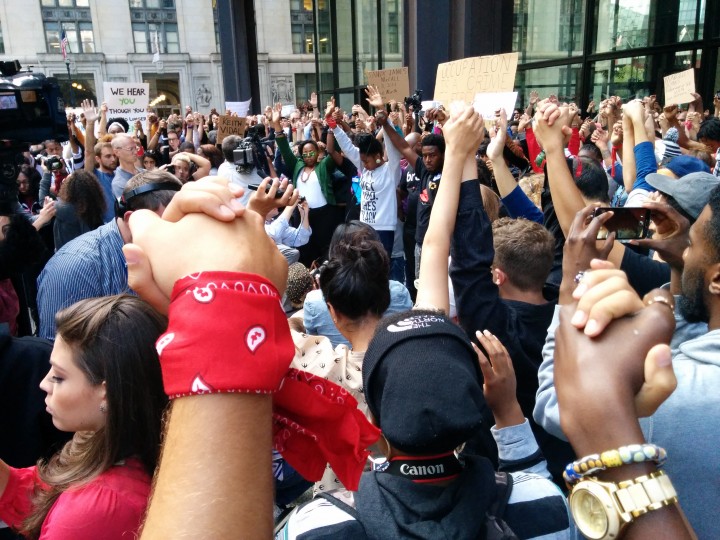
Image from TransformativeSpaces.org”On the Eve of Reclaim MLK” Read More
January 19, 2015
On this day of remembering the Reverend Dr. Martin Luther King, Jr., many will engage in service projects – a good thing, to be sure. But rarely do service projects change the social arrangements that produce such great needs. This year, there will be real efforts to “reclaim MLK Day” by engaging in protest and other acts to highlight the systemic injustices and call for systemic change.
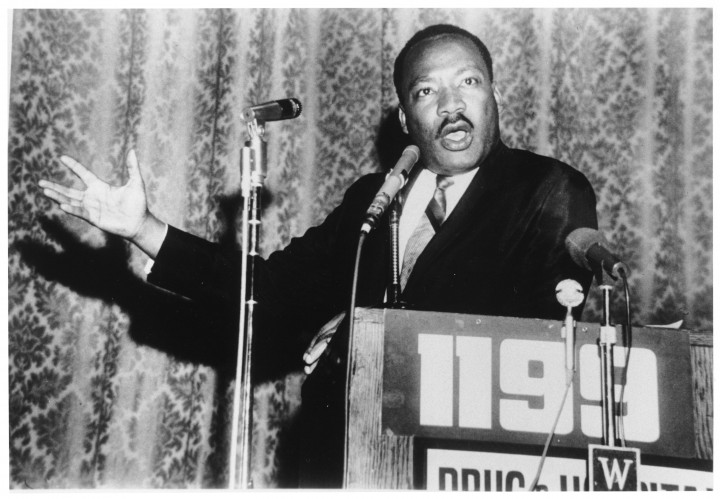 Read More
Read More
January 16, 2015
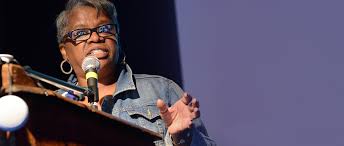
For the past three years, IISC has been privileged to partner with Food Solutions New England, under the convening of the Sustainability Institute at UNH, to develop a regional network to support a more just and sustainable food system. As part of this effort, we have pulled together a remarkable and dedicated Network Team, the members of which have taken it upon themselves to be champions, connectors, and strategists for this effort. Having released an ambitious Food Vision, FSNE is now reaching out to diverse partners across New England to make it a reality. The post below originally appeared on the FSNE blog, and is written by Network Team member and CEO of the Witness Project of Connecticut, Marilyn Moore. Marilyn is a strong advocate for racial and health equity and lives in Bridgeport, CT. She was recently elected to the Connecticut State Senate where she is Chair of the Human Services Committee and Vice Chair of the Environment Committee. Her message and ongoing work speak to the importance of putting equity at the center of our efforts to create sustainable systems for food, health, and economy.
More than 15 years ago I began educating women about breast cancer mortality and early detection. Most of my outreach centered around African American women who suffer the highest mortality even though the incidence is higher in white women than black women.
As a lay person, I find that what I don’t know allows me to look at issues from a common sense approach and ask those dumb questions. If every woman gets screened early why are their outcomes so bad? Sometimes the reason is the state of their health and when it is poor, they have poorer outcomes.
After educating over 15,000 women and witnessing first-hand how much they suffer through cancer and sometimes die, I learned that many of their outcomes were poor due to their overall general health. African Americans suffer from high rates of diabetes, heart disease, and cancer. Some of these women are battling more than one disease at a time. When a friend, who had her first chemo treatment, died at age 42 from a heart attack, I learned she was also diabetic and her diet lacked fresh fruits and vegetables.
We are surrounded by food deserts, the bodegas where most inner city people without transportation shop, don’t offer many healthy choices. Fresh fish, vegetables, and fruits are not available, cost prohibitive, and in the corner stores, unattractive. Urban communities need more local, affordable, and culturally appropriate foods.
As we look towards producing 50% of our food in the New England states by 2060 we must be mindful that if we are going to be inclusive, we must consider those who suffer the greatest health disparities. It’s not only about the right foods being available, but that we all have access.
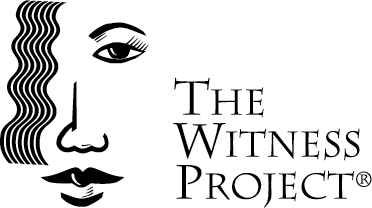
January 13, 2015
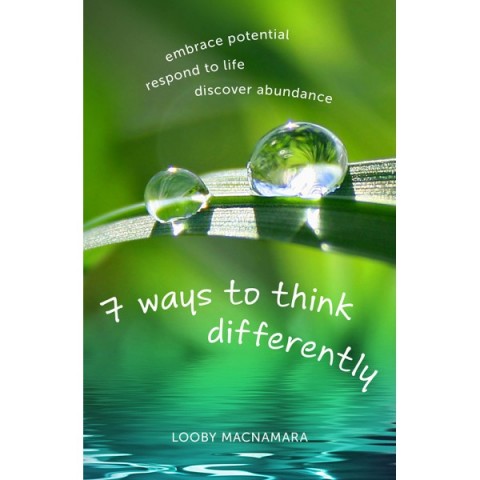
About 20 years ago I was introduced to the field of ecological design called permaculture, not in any great depth mind you, but from what I learned at the time, I was struck by how refreshing, sensible, and vital the practitioners’ perspective and approach were. Since then, and especially in recent years, interest in permaculture seems to have significantly grown (including my own) and its principles stretched beyond sustainable agriculture to human communities. Looby MacNamara is one of the teachers and practitioners who is helping with the more widespread application of permaculture principles. I just finished reading her short book, 7 Ways to Think Differently, which I recommend. In it she unites different ways of thinking (such as systems thinking and solutions thinking) with the underlying philosophical and methodological elements of “regenerative design.”
For me, one particularly fertile area is “abundance thinking.” I have to offer a bit of a pre-qualification that the word “abundance” can be used in certain contexts that I find off-putting, especially when there is little demonstrated understanding of existing structural inequities in society. That said, I think that “leading with abundance” as a mental exercise can provide valuable insights and approaches to social change. Here are a few thoughts, and I invite additions, reactions and push back: Read More


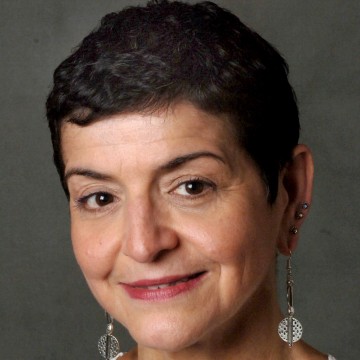

 Just recently in work with a national network, we turned the corner to start creating a structure to channel the alignment it has achieved around core goals for system change and ultimately to realize “collective impact” in a particular domain. As we were kicking off some of the early discussions, someone asked what I thought were the keys to creating a successful network structure. That’s a huge question that merits a complex answer, and I’ll admit that in reflecting on the dozen or so large scale change efforts I’ve been a part of the past 7 or 8 years, the first thing that came to mind was – “really good facilitation.”
Just recently in work with a national network, we turned the corner to start creating a structure to channel the alignment it has achieved around core goals for system change and ultimately to realize “collective impact” in a particular domain. As we were kicking off some of the early discussions, someone asked what I thought were the keys to creating a successful network structure. That’s a huge question that merits a complex answer, and I’ll admit that in reflecting on the dozen or so large scale change efforts I’ve been a part of the past 7 or 8 years, the first thing that came to mind was – “really good facilitation.”





